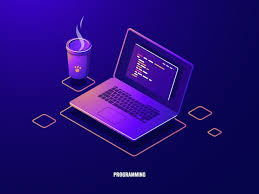Programming Languages
Discovering the Joy of Programming
Building a program using Scratch was
a delightful experience that felt more like playing a game than traditional
programming. As I dragged and dropped colorful blocks to create animations and
interactive stories, I quickly realized how intuitive the visual interface made
coding. This hands-on approach allowed me to grasp fundamental programming
concepts, such as loops and conditionals, in a playful way. I learned that
programming is not just about writing lines of code, it's about problem-solving
and creativity.
Comparing my experience with Scratch
to the activities in Section 10.1 of the textbook, I found that Scratch
embodies the essence of interpreted languages. It allows for immediate
feedback, which is quite different from compiled languages that require a more
rigid, step-by-step approach before seeing results. While working with assembly
languages felt daunting due to their complexity and low-level nature, I
appreciated the power they hold for system-level programming. Query languages,
like SQL, were straightforward but served a very different purpose for managing
and retrieving data efficiently.
Among the languages discussed,
Scratch was by far the easiest for me to use due to its user-friendly interface
and visual feedback. I can imagine Scratch being most effective in educational
settings, where young learners can explore programming concepts without the alarming
of syntax errors. On the other hand, I see compiled languages as ideal for
building complex software applications that require development and experience.
Assembly languages would be most effective in scenarios where hardware control
and performance are critical, such as in set systems. Finally, query languages
are invaluable for any application that involves large datasets, making data recovery
straightforward and efficient.
Short Program:
https://scratch.mit.edu/projects/1184020251/editor
References
Scott,
M. L., & ProQuest (Firm). (2006). Programming language pragmatics
[electronic resource] / Michael L. Scott. Morgan Kaufmann.
Erik
Hombre Cuevas, Daniel Zaldivar, & Marco Perez. (2025). Impact of
Programming Languages on Learning Performance. International Journal of
Information and Communication Technology Education, 21(1). https://doi.org/10.4018/IJICTE.371419
Hill,
C., Du, L., Johnson, M., & McCullough, B. D. (2024). Comparing programming
languages for data analytics: Accuracy of estimation in Python and R. WIREs:
Data Mining & Knowledge Discovery, 14(3), 1–21. https://doi.org/10.1002/widm.1531

%20(data%20engineering).jpg)
Comments
Post a Comment